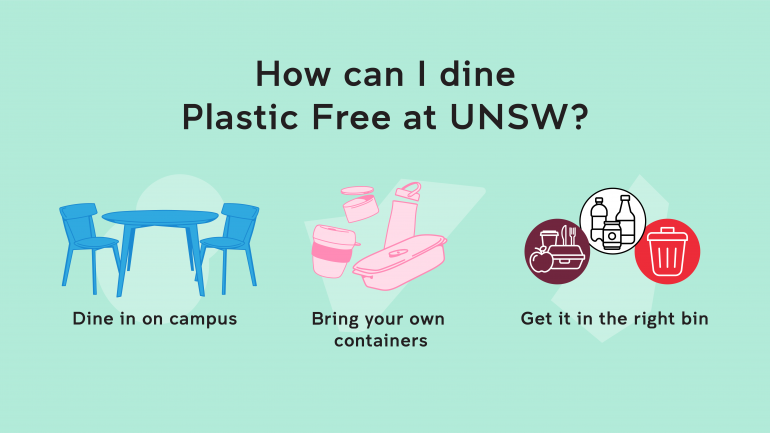Major Sustainability Initiatives at UNSW Sydney: A Closer Look
Sustainable practices are being incorporated into all aspects of University of New South Wales (UNSW) Sydney's operations, curriculum, and community engagement. The UNSW Environmental Sustainability Plan 2022–24 offers an ambitious and all-encompassing approach to sustainability, highlighting the crucial role universities play in addressing environmental concerns. This plan is evidence of UNSW's dedication to promoting sustainable practices in higher education while simultaneously lessening its environmental impact (Sustainability - UNSW Sydney, n.d.). UNSW is a leader in incorporating sustainability into all aspects of campus life, as seen by its investments in renewable energy projects, improvements to waste reduction and recycling, water conservation measures, and green building designs. This series demonstrates UNSW Sydney's commitment to creating a greener future by examining the university's significant sustainability efforts.
Expanded Focus on Renewable Energy Projects at UNSW Sydney
The Power Purchase Agreement (PPA) between UNSW Sydney and Sunraysia Solar Farm is a big step towards UNSW Sydney's goal of 100% renewable energy and sustainability. Through the procurement of clean solar energy, this effort not only lessens the university's carbon footprint but also boosts Australia's renewable energy industry.
By reducing greenhouse gas emissions and acting as a resource for sustainable practices education, the PPA with Sunraysia Solar Farm greatly benefits UNSW and the community. It's a prime example of UNSW's dedication to environmental conservation and its involvement in renewable energy promotion (Sustainability - UNSW Sydney, n.d.).
Source: Sunraysia Solar Farm
Waste Reduction and Recycling
The main focuses of UNSW's resource efficiency initiatives are recycling and waste reduction. With the goal of reducing trash generation and improving recycling throughout all of its campuses, the institution has put in place comprehensive waste management systems. An important project is the Plastic Free Dining programme, which encourages campus businesses and the university community to limit their consumption of single-use plastics. Other important initiatives are the introduction of mixed recycling bins and electronic waste collection sites (Sustainability - UNSW Sydney, n.d.).
Image Source: Dine Plastic Free
Government Support for Sustainability Initiatives at UNSW
Significant funding and assistance for the University of New South Wales (UNSW) has been provided by the Australian government, demonstrating its commitment to sustainability and its support of academic institutions in this area (UNSW SMaRT Centre, 2024). Contributions from the government to a large-scale recycling and clean energy effort are one prominent example of this support. As evidence of its dedication to promoting sustainability initiatives in higher education and beyond, the Australian government has contributed $50 million to this project. UNSW and the University of Newcastle have matched the government's $50 million cash contribution and an extra $47 million in-kind financing, making this funding a joint effort. With the participation of more than 20 industry partners who have paid more than $130 million in cash and in kind, this cooperation is strengthened even further (UNSW SMaRT Centre, 2024).
Image Source: Clean Energy
Water Conservation Measures
UNSW has implemented a number of initiatives to curtail water use and improve the sustainability of water resource management because it recognises the vital relevance of water conservation. These include using treated wastewater for irrigation and other non-potable uses, installing water-efficient fixtures and fittings, and setting up rainwater harvesting systems. These initiatives not only support water conservation but also show how sustainable water management techniques may be used in real-world scenarios (Sustainability - UNSW Sydney, n.d.).
Green Building Initiatives
In order to highlight the value of environmentally friendly and energy-efficient building techniques, UNSW has been aggressively pushing green building projects. Composting systems and bringing a pot plant to the office are two examples of sustainable activities that staff and students are encouraged to participate in through the Green Impact programme (UNSW Sustainability, 2024). In line with international initiatives to cut carbon emissions and tackle climate change, this programme is a component of UNSW's larger commitment to environmental sustainability.
Furthermore highlighting the link between sustainable infrastructure and public health is the university's participation in talks regarding the significance of green buildings in the post-COVID-19 recovery (UNSW Sites, 2024). Creating better living and working environments is just as important as minimising the environmental impact when it comes to green buildings.
Conclusion
UNSW Sydney is embracing sustainability on a daily basis through these and numerous more activities. The institution is demonstrating a comprehensive commitment to sustainability that permeates every facet of campus life through its efforts in green building, waste reduction, renewable energy, and water conservation. It's evident from our ongoing investigation of UNSW's sustainability journey that the university is not just having a big influence locally but also helping to achieve global sustainability goals.
References
Sustainability - UNSW Sydney. (n.d.). Environmental Sustainability Plan 2022-24. Available at: https://www.sustainability.unsw.edu.au/our-plan [Accessed 11 Feb 2024].
UNSW SMaRT Centre (2024) Trailblazer for Recycling and Clean
Energy. Available at:
https://www.smart.unsw.edu.au/research-programs/trailblazer-recycling-and-clean-energy
(Accessed: 7 March 2024).


Well Written 😊👌
ReplyDeleteThank you for reading it
DeleteWell written and explained conclusion was precise
ReplyDeleteThis comment has been removed by the author.
DeleteThankyou for reading it
Delete